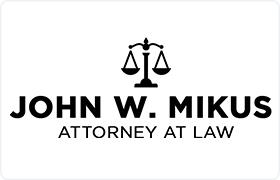 Simonton Eminent Domain Lawyers, Texas
Simonton Eminent Domain Lawyers, Texas
Sponsored Law Firm
-
 x
x

Click For More Info:
-
John W. Mikus Attorney At Law
9301 Southwest Fwy Suite 250 Houston, TX 77074» view mapEstate Law Your Honest And Trustworthy Solution
Attorney Mikus is committed to being your reliable resource for a variety of legal services. Attorney Mikus will look over your case thoroughly to determine the next steps to take.
800-752-0100
Lawyers
1-1 of 1 matches



 John W. Mikus Houston, TX
John W. Mikus Houston, TX Practice AreasExpertise
Practice AreasExpertise